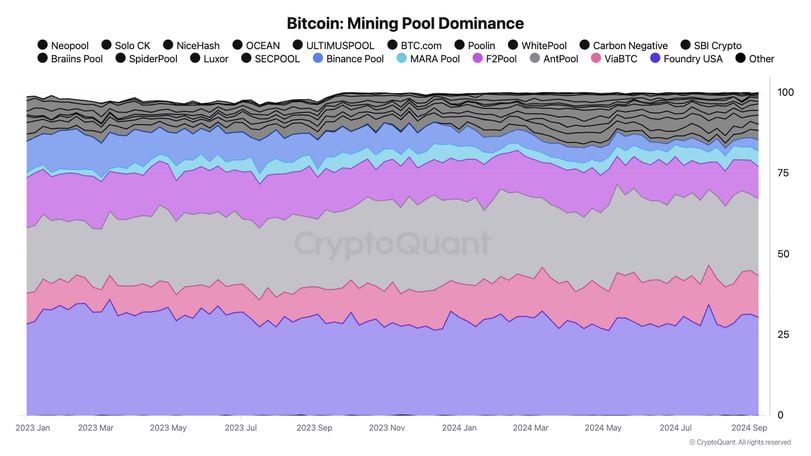Solo Bitcoin Miner Wins Big After Securing an Entire Block Reward
-
Solo miner receives $181,000 block reward.
-
Bitcoin mining still dominated by larger mining pools, with FoundryUSA and Antpool representing more than 50% of the total hash rate.
A solo bitcoin (BTC) miner beat a swathe of powerful mining pools to receive a $181,000 reward after successfully mining block 860749 on Tuesday.
Bitcoin blocks are produced roughly every 10 minutes and are typically mined by mining pools, which combine computing power to give them the best possible chance of pocketing the block reward. The reward to successfully mine a block sits currently at 3.125 bitcoin , after a recent halving event earlier this year.
Solo miners usually have historically had limited computing power to mine blocks, although new solo mining rigs like BitAxe claim to offer 500 Giga Hashes per second (GH/s). Still, a solo miner winning a block could be compared to winning a lottery, given that the network's hashrate and difficulty are currently at all-time highs and institutional miners with immense computing power are also competing for the same block rewards.

"It is not a rare occurrence that a solo miner finds a block, it is just a low probability event," CryptoQuant's head of research Julio Moreno told CoinDesk. "However, this has been happening a little bit more frequent as there has been a growth in the production of small ASICs (mining equipment), which is specifically targeted to people that want to mine by their own from their own home."
"Still, the mining pool space remains highly concentrated, with two pools, FoundryUSA and Antpool, adding up to 53% of the total Bitcoin network hashrate," Moreno added.
According to Hashrate Index, Foundry USA currently has a reported hash rate of 202.8 exahashes per second (EH/s), and AntPool has a figure of 160.3 EH/s. An exahash is a metric that is one billion times greater than a gigahash.
CORRECTION (Sept. 10, 2024, 22:16 UTC): Corrects the length of time it usually takes for a Bitcoin block to be produced.

